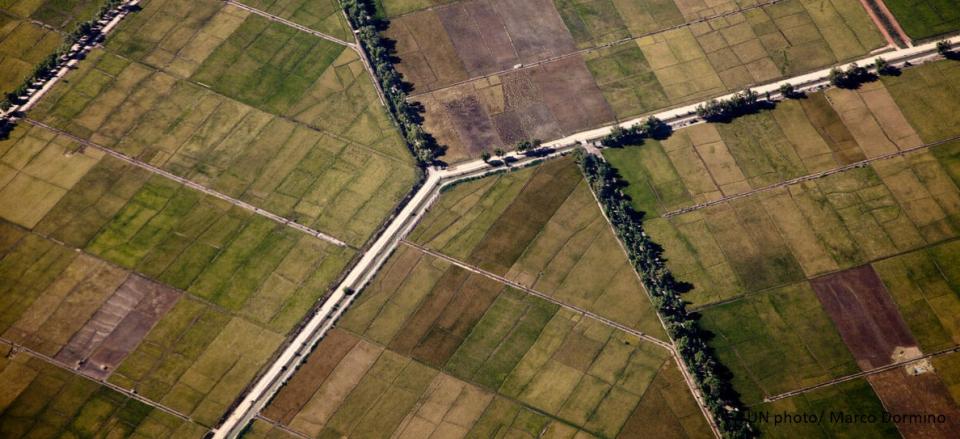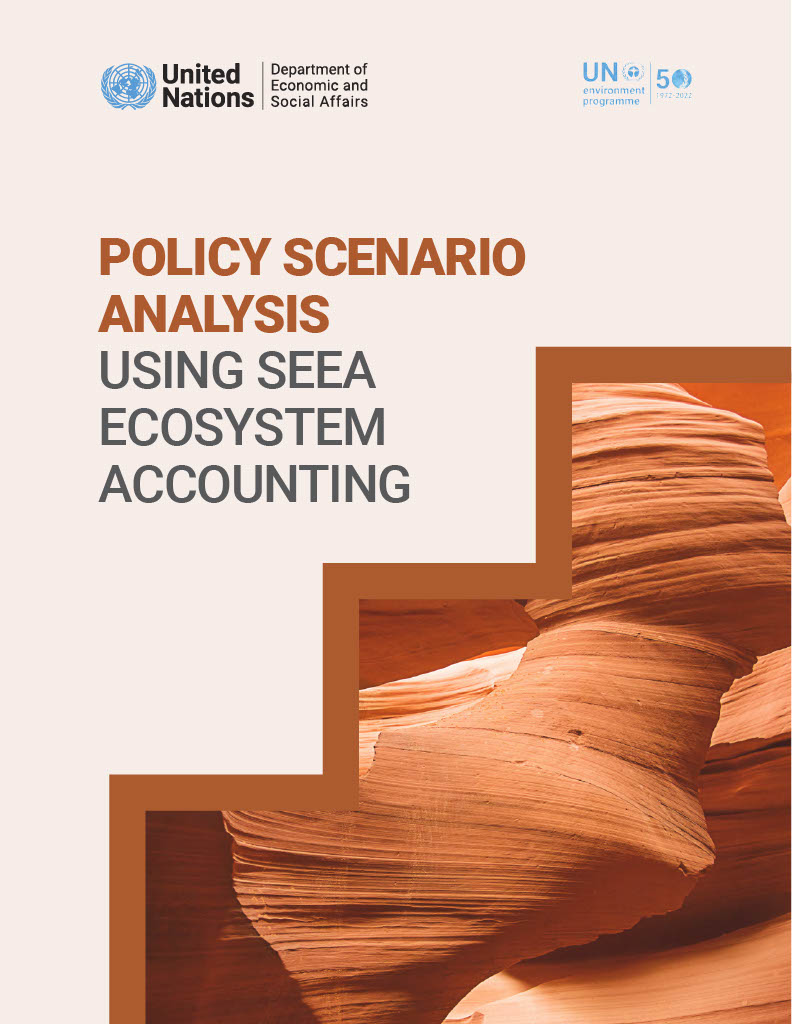Informing Policy Scenario Analysis Using SEEA Ecosystem Accounting

A key dimension to increasing the uptake of the accounts is mainstreaming their application into policymaking. In response to this need, a technical report, Policy Scenario Analysis Using SEEA Ecosystem Accounting, has been developed, as part of the Natural Capital Accounting and Valuation of Ecosystem Services (NCAVES) project, funded by the European Union. The report was formally launched during the Fifth Policy Forum on Natural Capital Accounting for Better Decision Making:
The objective of the report is to improve the effectiveness of decisions for sustainable development by highlighting how use of the SEEA Ecosystem Accounting (SEEA EA) in scenario analysis models can provide policymakers with a better understanding of the interconnections between society, economy and the environment, and hence lead to better decisions. The report provides an overview of how to link the ‘data push’ from the development of accounts with the ‘policy pull’ demand for information by policymakers.
While ecosystem accounts are by nature backward-looking and describe the past, this report shows that future-looking policy scenario analysis can be informed or improved by applying ecosystem accounts in different types of models and modelling approaches. The report includes: an overview of core concepts and dimensions in scenario design; a technical review of state-of-the-art methods and simulation models for scenario analysis; and policy-relevant content to create an explicit link between the use of models and policymaking, based on successful country examples. Country examples are drawn from existing literature and studies undertaken as part of the NCAVES project in China and South Africa.

The report was prepared by Dr. Andrea Bassi under the guidance of UNEP and UNSD and was peer reviewed by experts on the SEEA EA and its policy applications. The launch presentation of the report was done during the Fifth Policy Forum on NCA for better decision making can be found here. A preliminary version of the report was presented to the African NCA Community of Practice; a recording of this webinar is available here.
